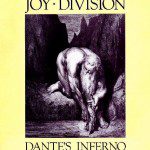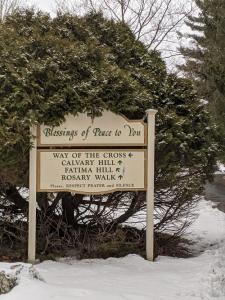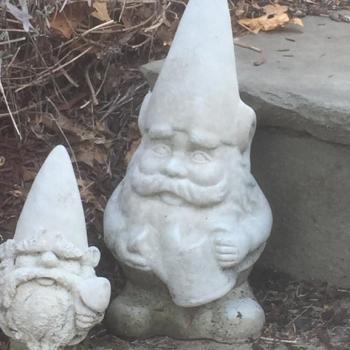When I was young, summertime meant joy. And it mostly still does – the long days, the eagerness to be outside, even the suffocating heat of South Louisiana recalls days of summer break for school, freedom unlike anything else in my school-aged mind. But getting older means that freedom isn’t as carefree as it once was.
Maybe it’s empathy that lessens the unbridled happiness. I know people are struggling right now. So summer’s not as insular, not as huge a vacation for me anymore. And that is bittersweet. Being tied to others means hurting more and being aware of misery existing in the world, regardless of season. It’s worth it.
Maybe you’re not as sunshine-y as the summer weather. If you feel like a personified rain-cloud on the beach – this post is for you.
I asked some boys and girls of summer what was giving them some small joy right now. So here’s your monthly list of cheap-to-free things keeping some sick pilgrims alive.
*****
Shana Hutchings is a member of the Sick Pilgrim community living in central Iowa with her husband and four children. Originally from Alaska, she loves spending time outside, reading, baking, and writing. Her name rhymes with “banana.”
Spontaneous (very-)short-term retreats. Summer days can be fun for a mom, but long, too. After spending all day with my four children going on adventures and trying to keep cool, I’m ready for a break. My husband and I have decided the best strategy this summer is to divide and conquer. He puts the younger kids to bed and I take my oldest to her swim practice and spend the hour walking around on the trails near the pool. The park has hiking trails meandering through the woods, as well as a large paved path along the creek. The cool air, dense forest, and slow-moving creek have been keeping me above water, for sure.
Thoreau and the Language of Trees. I’d been wanting to read it for a few months, and it’s even better than I thought it would be. The  book is a short compilation of his journals and other writings on trees, accompanied by photographs the author took while exploring Thoreau’s New England. It’s a beautiful book, one that causes me to pause and take a look around at the beauty that surrounds me every time I step outside.
book is a short compilation of his journals and other writings on trees, accompanied by photographs the author took while exploring Thoreau’s New England. It’s a beautiful book, one that causes me to pause and take a look around at the beauty that surrounds me every time I step outside.
*****
Kristen lives in Massachusetts with her two naughty dogs, her remarkable–and fresh–husband, and two incorrigible sons (her daughter had the good sense to buy her own house a half hour out-of-town). She teaches preschool, roots for the Red Sox, and advises anyone who will listen to marry a man who can cook.
Playing a tourist in my hometown. The past month has played out like the pilot for an HBO dark comedy  in my life, so I am really, really counting on the small joys to keep me alive. Today, that means giving half a dozen 4-year-old their own bubble “light sabers” to simultaneously save the universe and to fill the babies’ playground with bubbles. It also means playing tourist in my hometown. A niece and a great nephew were in New England for the week. I got to spend a great day in Boston on a Duck Boat tour and then spend the evening in one of the most sacred places on the planet–Fenway Park–for a baseball game.
in my life, so I am really, really counting on the small joys to keep me alive. Today, that means giving half a dozen 4-year-old their own bubble “light sabers” to simultaneously save the universe and to fill the babies’ playground with bubbles. It also means playing tourist in my hometown. A niece and a great nephew were in New England for the week. I got to spend a great day in Boston on a Duck Boat tour and then spend the evening in one of the most sacred places on the planet–Fenway Park–for a baseball game.
*****
Adolfo Rodriguez is doing his best to adult in Abita Springs, LA, albeit unsuccessfully most of the time. He is married, a father of five lovely daughters, and teaches Theatre, Theology, and Film Studies at a Catholic high school in the area. Adolfo is also a devotee of the late musician, Rich Mullins, so much so that he moved to Los Angeles in 1997 just because Mullins appeared to him in a dream and told him to. Adolfo started a local theatre three years ago (because he wasn’t busy enough) and serves as Artistic Director there. He hates coconut, is irrationally afraid of sharks, and loves steak. And coffee. And beer.
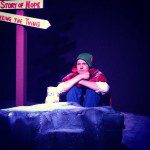 The show I’m in. At this stage in my life, I tend to direct more than act so it’s always a treat to get to strut my stuff on stage. It’s even better when I get to push myself comedically as I do in my role as Freddy in “Dirty Rotten Scoundrels.” I sing, I dance, I even do partial nudity (something I never thought I’d ever do)! Pouring myself into this sort of project has been therapeutic and a source of joy.
The show I’m in. At this stage in my life, I tend to direct more than act so it’s always a treat to get to strut my stuff on stage. It’s even better when I get to push myself comedically as I do in my role as Freddy in “Dirty Rotten Scoundrels.” I sing, I dance, I even do partial nudity (something I never thought I’d ever do)! Pouring myself into this sort of project has been therapeutic and a source of joy.
Spite. That’s right, one thing keeping me alive is pure spite. When I do have suicidal thoughts, I remind myself that 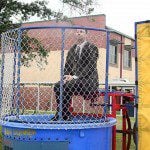 if I do it, then all of those bastards who think I’m a freak and too far out there will get the last word and I’ll be damned if I’m going to let that happen. The longer I’m alive, the longer they are forced to deal with me and be annoyed by me and just knowing that their brows have to furrow one more time at something I’ve said or done makes me glad to be alive.
if I do it, then all of those bastards who think I’m a freak and too far out there will get the last word and I’ll be damned if I’m going to let that happen. The longer I’m alive, the longer they are forced to deal with me and be annoyed by me and just knowing that their brows have to furrow one more time at something I’ve said or done makes me glad to be alive.
*****
Toby D’Anna doesn’t have time for no stinkin’ author bio, capiche?
Planetarium by Sufjan Stevens. Every new Sufjan Stevens concept album deserves several meditative re-listenings, but he’s really outdone himself this time. Planetarium, his new release, trades away Stevens’ characteristic art folk stylings for lush string sections and danceable electronic beats. The album is the aural kin of the films of Terrence Malick, an existential questioning of man’s place in the cosmos informed by both Christian humanism with biblical references and the Roman mythology from which the planets draw their names. Patrick Tomassi’s audio essay, “The Myth of Sufjan Stevens” at Pope Culture Pelican is an excellent primer on the hidden meanings in the album, while Adam Tyler Horn is a worthy Virgil ready to guide you through the Divine Comedy of Stevens’s last three albums in “Sufjan Stevens’ Planetarium in Paradise.”
Betty Aberlin, the Lady Aberlin from Mister Rogers’ Neighborhood, is, I recently discovered, both a poet and a devotee of George  MacDonald, the nineteenth century Scottish clergyman and writer whose works influenced luminaries of the Christian imagination like G.K. Chesterton, C.S. Lewis, J.R.R. Tolkien, and Madeline L’Engle. In The Diary of an Old Soul, a collection of devotional poems written after the deaths of two of his children, MacDonald left blank pages for readers to write their own thoughts. Aberlin matches MacDonald poem for poem in The White Page Poems, a collection that includes MacDonald’s original poems running parallel to hers. Her theologically-informed mysticism is worthy of the old master, and the juxtaposition reads like a conversation across the ages about the things that transcend time.
MacDonald, the nineteenth century Scottish clergyman and writer whose works influenced luminaries of the Christian imagination like G.K. Chesterton, C.S. Lewis, J.R.R. Tolkien, and Madeline L’Engle. In The Diary of an Old Soul, a collection of devotional poems written after the deaths of two of his children, MacDonald left blank pages for readers to write their own thoughts. Aberlin matches MacDonald poem for poem in The White Page Poems, a collection that includes MacDonald’s original poems running parallel to hers. Her theologically-informed mysticism is worthy of the old master, and the juxtaposition reads like a conversation across the ages about the things that transcend time.
*****
See ya next month. Stay alive.


